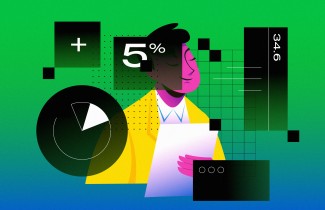The Skills of Today
The skills most sought by companies as well as by millions who are looking for a career change are programming, experience design, and digital marketing
The tale that college graduates don't have the skills companies are looking for has been heard for decades. A hundred years ago, industries began looking for experts in electricity to understand this energy that would change the history of the production line, as Andrew Ng, an expert in artificial intelligence and one of the founders of Coursera, recalls. There are many contemporary equivalents of electricity: e-commerce, digital marketing, the data of millions of customers and the disruptive technologies that exploit, process and protect them.
The skills most sought after by Mexicans are very similar to those desired by Americans, the Swiss or Thais, and are closely related to these new electricities that currently comprise our economic engine, whether we perceive them or not. The growth of e-commerce (led by Amazon and coveted by any business in the physical world) has brought such talent needs to light.
Although nowadays you can use Shopify and set up your online store by designing an interface that will attract customers, build an unforgettable experience, and ensure a quick and efficient purchase, this apparently trivial process requires a combination of design and programming skills and business insight. Professionals who manage to combine them are unique. This is the cue for the User Experience (UX) experts and data engineers who define what types of data they will request from their web or app users (they are not always the same), what the balance is between having as much information as possible about the customer or staying with credit card payments and asking for the bare minimum to make sure that customers do not abandon their shopping cart like 50% of Mexicans today.
The 44 zettabytes of data we produce as a planet (the equivalent of 9 trillion DVDs) are the product of recording our behavior. A single Uber generates 1 terabyte of information per day: let's think about the vast savannah of data generated by each trip: origin, destination, average speed, driver and user score, cost, etc. Managing, programming, and, above all, knowing how to use this information to predict behavior is the task of a data scientist, who, together with the business departments, will use data such as the battery charge level of your cell phone to prioritize your order if there is a risk that low battery power will prevent you from completing your transaction.
User data protection is becoming increasingly relevant for companies. Garmin customers will think twice about buying a GPS watch if they are afraid that their information is not secure. As users, we almost always, though not always consciously, apply the same rule: if the data we share brings us more benefit than risk, we will always choose to share. This issue not only implies a legal responsibility for companies, but also a market differentiator. The skillset of a cybersecurity expert ranges from how to use a more secure password or avoid opening a malicious file, to how to put customer data in a cloud that not only scales when demand increases, but also provides security.
Coursera's latest global skills report clearly reflects the need for all these talents in Mexico. Latin America will demand three million programmers by 2025 and surely the statistics are equally aggressive for any digital skill. Unsurprisingly, the most sought-after certifications on online platforms are big data, artificial intelligence, Python programming, and cybersecurity.
However, it is not always possible to wait the four years of an undergraduate degree: Mexico must ensure the availability of this talent knowing, moreover, that it will be highly attractive to other markets. In 2022, the supply of foreign companies in Mexico increased by 150%, a trend that is supported by platforms such as DEEL, which make it possible to do almost any job virtually and generate payment systems in cryptocurrency.
How can this challenge be turned into an opportunity? Across the world, universities are formally integrating these skills into their curricula to make their graduates more employable. The Indian government has permitted the inclusion of up to 30% of asynchronous courses created by the world's top universities or technology leaders available on platforms such as Coursera, Udacity or edX. Companies struggling to attract and retain talent are beginning to invest far more seriously in building these skills internally (a qualified accountant could be trained in Data Analytics) or offering them as development alternatives (a junior developer could become a data scientist).
The world is definitely not the same as it was two years ago before the pandemic. An opportunity for companies, universities and governments to attract talent with digital skills would be to offer flexibility to produce virtually and a level of challenge and development that would make day-to-day activities “worthwhile.” And perhaps this generation will bring about this transformation by betting on digital skills they can learn and relearn in months (rather than years), leading them to flexible, well-paid jobs that can be done from anywhere in the world.
The author is Associate Professor at EGADE Business School.
Article originally published in Forbes México.



